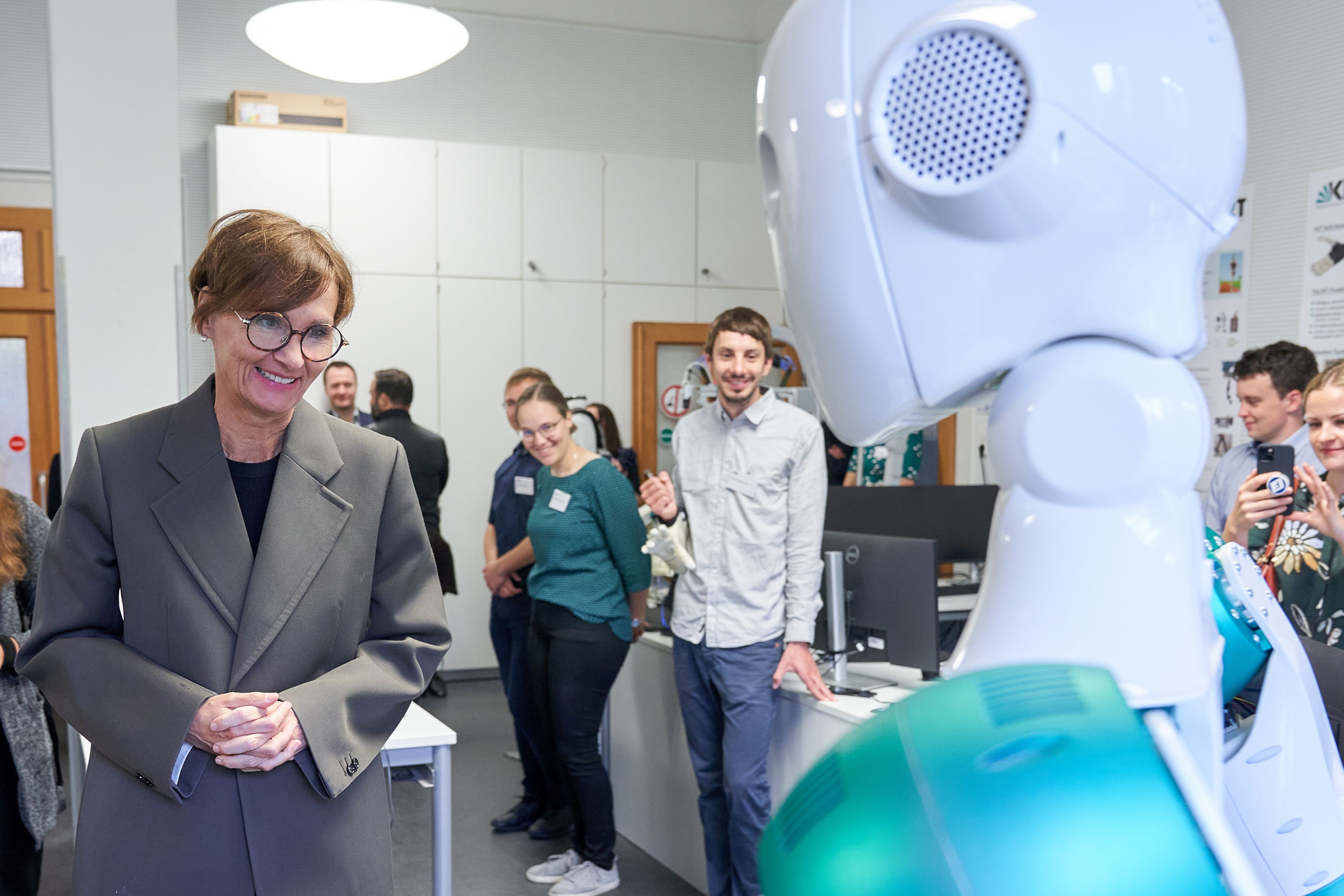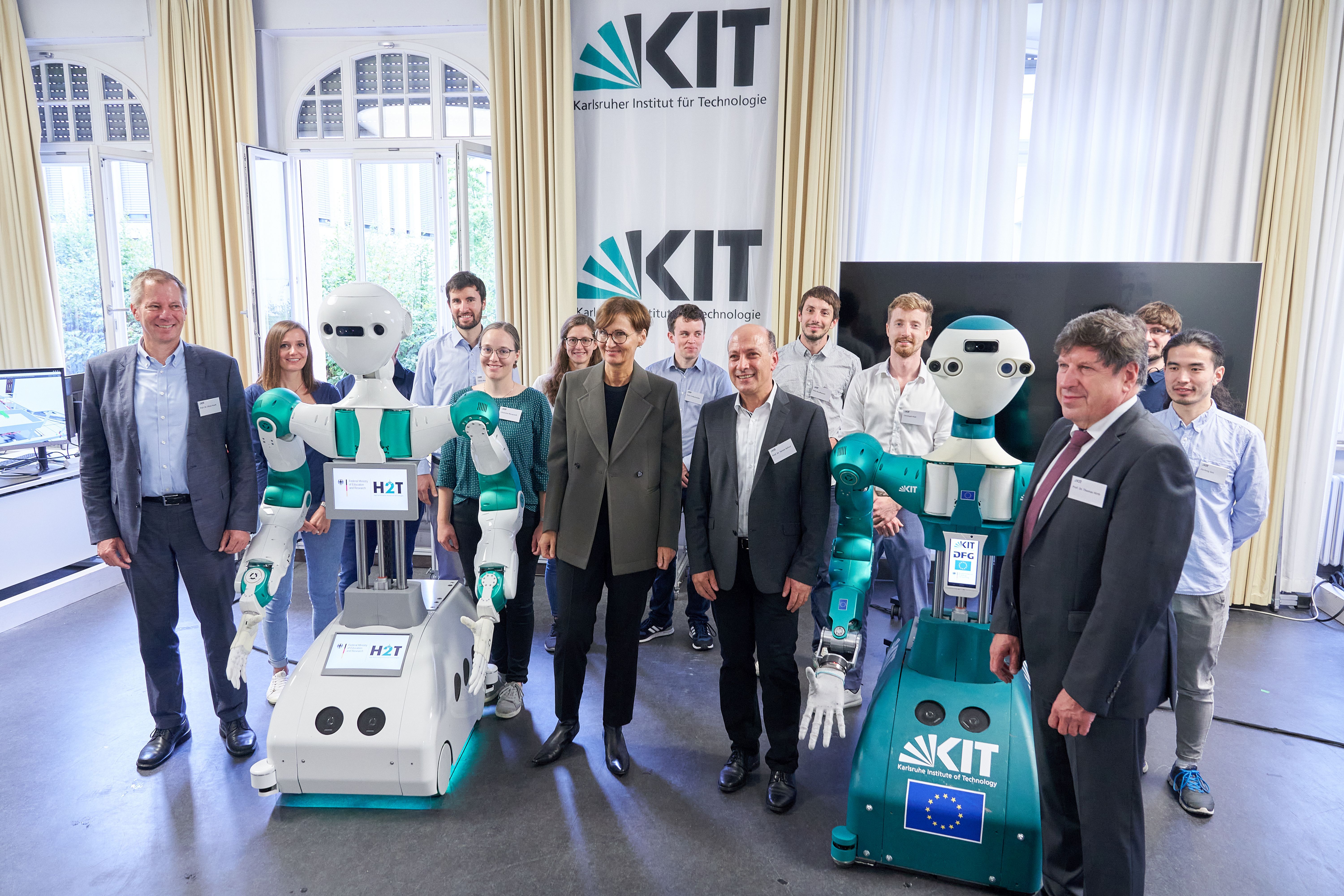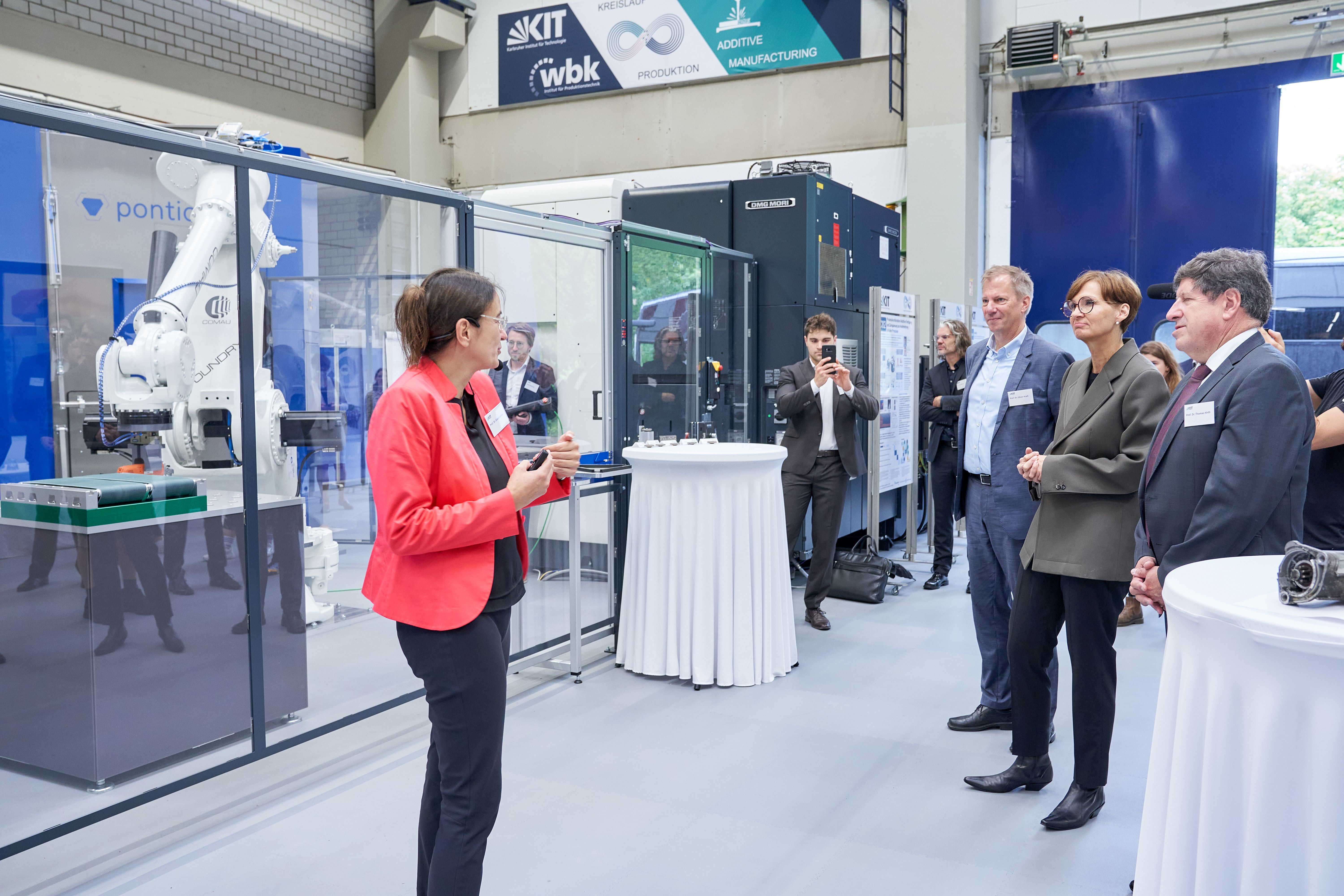Robotics, AI, Sustainable Production: Bettina Stark-Watzinger visits KIT
-
author:
Margarete Lehné
- place:
- date: 31.07.2023

Intelligent robot technologies and systems that can support humans in versatile tasks. Processes that enable artificial intelligence (AI) methods to bring used products into a sustainable cycle. Scientists at the Karlsruhe Institute of Technology (KIT) are working on solutions like these. The Federal Minister of Education and Research Bettina Stark-Watzinger informed herself about the current status of this research during a visit to KIT today (July 28, 2023) on her summer tour.
The Federal Research Minister visited laboratories and research facilities at KIT's Institute of Anthropomatics and Robotics and KIT's wbk Institute of Production Engineering.
"AI is a key technology that holds huge opportunities for our economy and for our society. Robotics is the top class of AI in this context. The big challenge is to integrate AI into robotic systems, especially if this is to be implemented quickly, cost-effectively, and ethically. This is also where our research funding comes in, in order to bring robotic systems safely into demanding applications. KIT is making an important contribution here," said Federal Research Minister Bettina Stark-Watzinger.
"Artificial intelligence methods open up great opportunities for us. At KIT, we use them, among others, in humanoid robotics and for industrial production, in each case to support humans in direct interaction," says Professor Oliver Kraft, KIT Vice President Research. "In doing so, we are aware of the responsibility for humans, think about possible risks, and deal intensively with ethical questions about artificial intelligence and the use of robots in private environments."
"The topic of AI and possible applications is always about the perspective of the people who use these systems and technologies. We at KIT are particularly committed to the dialog with society," said Professor Thomas Hirth, Vice President Transfer and International Affairs at KIT. "An outstanding example of this is the Real Lab Robotic AI, where we conduct research in real environments and in exchange with users."
Technology for humans: Humanoid robotics

Methods of robotic AI are among the central research topics of Tamim Asfour, Professor of High Performance Humanoid Technologies (H²T) at the IAR. His goal is to develop human-oriented humanoid robots and assistive technologies that improve the quality of human life. With his team, he researches and develops intelligent robotic technologies and systems that can perform tasks in the home and in industrial environments. The ARMAR humanoid robots learn from observation of humans, from natural language interaction, and from their own experience. For example, ARMAR-3and ARMAR-6 humanoid robots can assist humans with everyday tasks in the kitchen or maintenance tasks in industrial facilities. Based on AI methods, the robots can assess when a human needs help and offer it proactively. In addition to the ARMAR family of robots, the researchers will present wearable assistive technologies such as personalized intelligent prosthetic hands and exoskeletons.
Sustainable production: circular factory for the "eternal product"

In the closed-loop factory at KIT's wbk Institute of Production Technology, researchers face the challenge of dismantling used products, refurbishing them, and transferring them to the original or a newer product generation. Until now, these process steps have required a high level of manual labor. Professor Gisela Lanza, head of the wbk, is researching sustainable circular production patterns, which she is designing using AI methods. With her colleagues, she captures cognitive processes such as people's eye and gaze behavior during problem recognition and solution behavior and transfers them to automatable processes using machine learning methods. The goal is to bring used products into a sustainable cycle in order to get closer to the vision of an "eternal product." The scientific questions range from production engineering and product development to materials engineering and work science to robotics, computer science and knowledge modeling.
As "The Research University in the Helmholtz Association", KIT creates and imparts knowledge for society and the environment. Its goal is to make significant contributions to global challenges in the fields of energy, mobility, and information. To this end, about 9,800 employees cooperate on a broad disciplinary basis in natural sciences, engineering, economics, and humanities and social sciences. KIT prepares its 22,300 students for responsible tasks in society, industry, and science through research-oriented university studies. KIT's innovative activities bridge the gap between knowledge and application for the benefit of society, economic prosperity, and the preservation of our natural resources. KIT is one of the German universities of excellence.
ase, 07/28/2023
